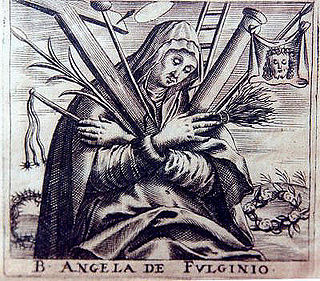A Quote by Joseph Glanvill
Man doth not yield him to the angels, nor unto death utterly, save only through the weakness of his feeble will.
Related Quotes
... God cometh sometimes unto the soul when it hath neither called, nor prayed unto, nor summoned Him. And He doth instil into the soul a fire and a love and a sweetness not customary, wherein it doth greatly delight and rejoice ... Thus doth the soul feel that God is mingled with it and hath made companionship with it.
The face of the Son of God, who, instead of accepting the sacrifice of one of his creatures to satisfy his justice or support his dignity, gave himself utterly unto them, and therein to the Father by doing his lovely will; who suffered unto the death, not that men might not suffer, but that their suffering might be like his, and lead them up to his perfection.
God does not need your strength: he has more than enough of power of his own. He asks your weakness: he has none of that himself, and he is longing, therefore, to take your weakness, and use it as the instrument in his own mighty hand. Will you not yield your weakness to him, and receive his strength?
Had He not emerged from the tomb all our hopes, all our salvation would be lying dead with Him unto this day. But as we see Him issue from the grave we see ourselves issue with Him in newness of life. Now we know that His shoulders were strong enough to bear the burden that was laid upon them, and that He is able to save to the uttermost all that come unto God through Him. The resurrection of Christ is thus the indispensable evidence of His completed work, His accomplished redemption.
If any sensual weakness arise, we are to yield all our sound forces to the overthrowing of so unnatural a rebellion; wherein how can we want courage, since we are to deal against so feeble an adversary, that in itself is nothing but weakness? Nay, we are to resolve that if reason direct it, we must do it, and if we must do it, we will do it; for to say "I cannot" is childish, and "I will not" is womanish.
Nothing can separate you from His love, absolutely nothing, neither death nor life, nor angels, nor principalities, nor powers, nor things present, nor things to come, nor height, nor depth, nor any other creature... We do not need to beg Him to bless us, He simply cannot help it. Therefore God is enough! God is enough for time, God is enough for eternity. God is enough!
The king is but a man, as I am; the violet smells to him as it doth to me; the element shows to him as it doth to me; all his senses have but human conditions; his ceremonies laid by, in his nakedness he appears but a man; and though his affections are higher mounted than ours, yet, when they stoop, they stoop with the like wing.
If the black man is feeble and not important to the existing races, not on a parity with the best race, the black man must serve,and be exterminated. But if the black man carries in his bosom an indispensable element of a new and coming civilization; for the sake of that element, no wrong nor strength nor circumstance can hurt him: he will survive and play his part. So now, the arrival in the world of such men as Toussaint, and the Haytian heroes, or of the leaders of their race in Barbadoes and Jamaica, outweighs in good omen all the English and American humanity.
Man's ignorance of the Law of Love in personal and world relationships will not serve as an excuse to save him from disaster. Wealth cannot be acquired from others by might, for wealth thus taken will impoverish him who takes anything which is not given. Nor can power be thus acquired, for the weakness of the despoiled will prevail against the might of the despoiler.
A man preacheth that sermon only well unto others which preacheth itself in his own soul. And he that doth not feed on and thrive in the digestion of the food which he provides for others will scarce make it savoury unto them; yea, he knows not but the food he hath provided may be poison, unless he have really tasted of it himself. If the word do not dwell with power in us, it will not pass with power from us.
[N]either in war nor yet at law ought any man to use every way of escaping death. For often in battle there is no doubt that if a man will throw away his arms, and fall on his knees before his pursuers, he may escape death; and in other dangers there are other ways of escaping death, if a man is willing to say and do anything. The difficulty, my friends, is not in avoiding death, but in avoiding unrighteousness; for that runs faster than death.





































